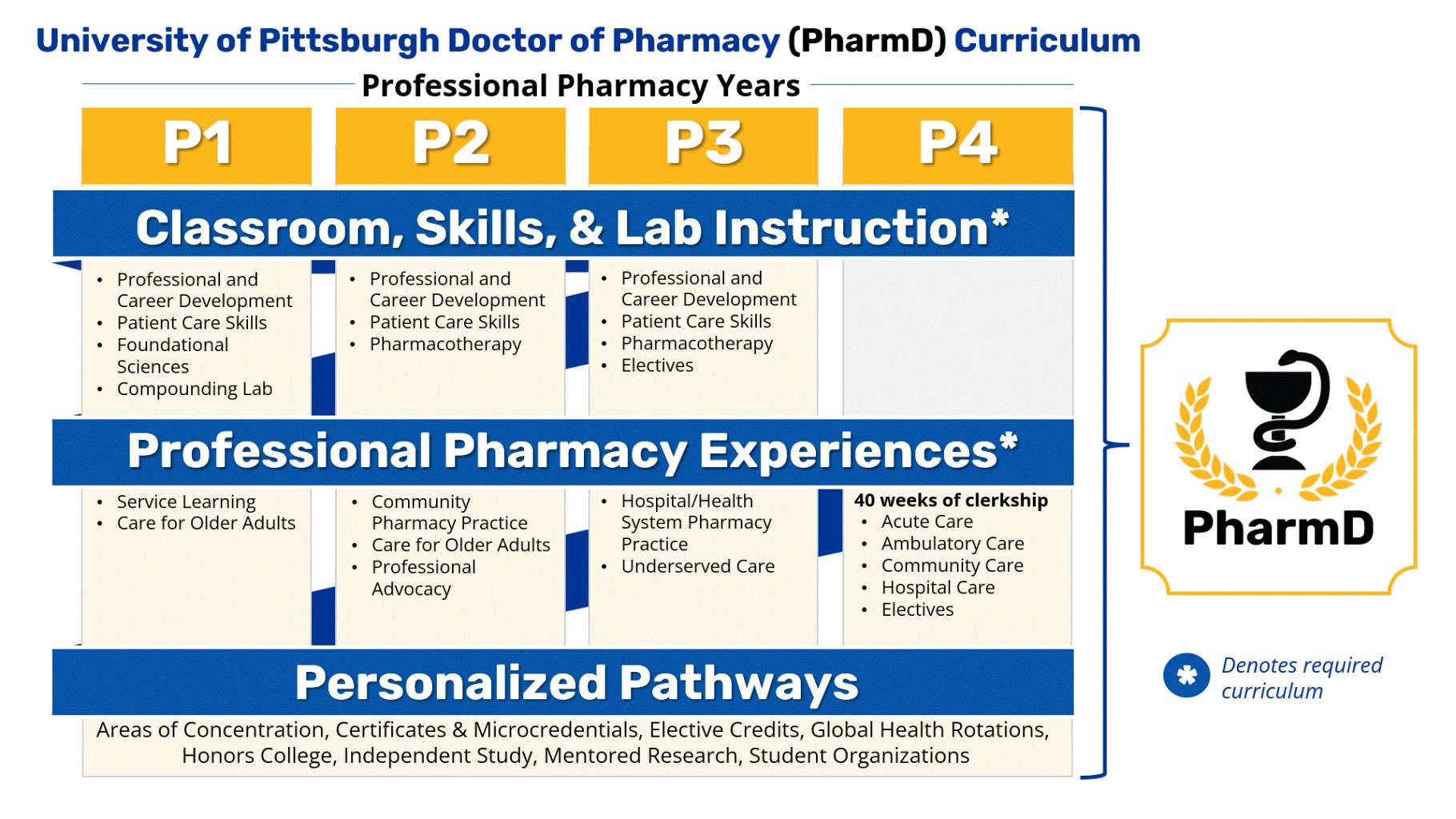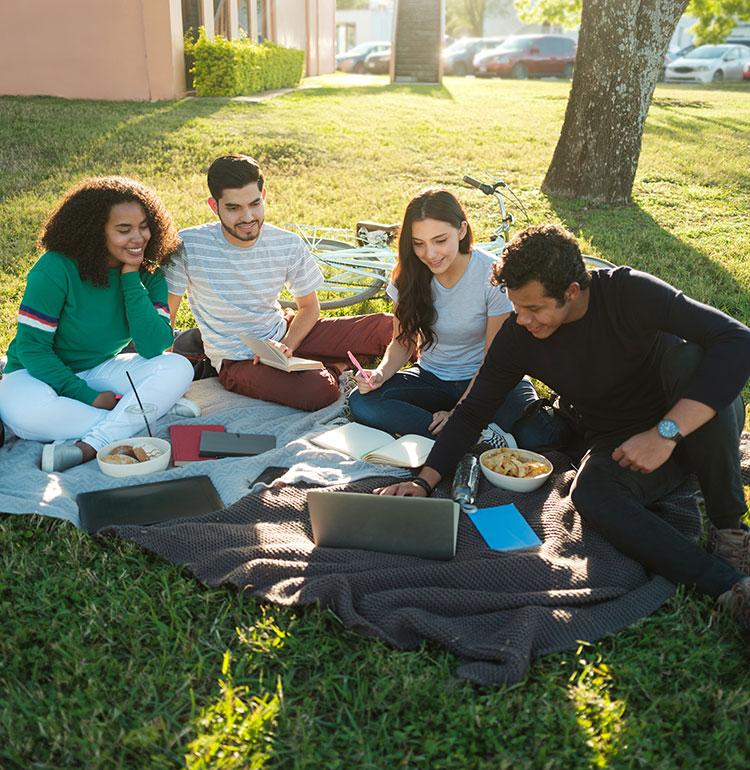We emphasize a problem based approach to learning from the design of our curriculum; to teaching and assessment strategies so that all knowledge deepens the real world problem solving abilities of our students. This encourages our students to seek out those types of pharmacy roles and expertise that is most meaningful to them, while also providing them with a thorough understanding of generalized pharmacy.
Our innovative curriculum integrates science and practice, emphasizes student-centered learning, and gives our students the best possible preparation for pharmacy practice in any setting they choose.

Course Listing
Experiential Learning
The required component of experiential learning is designed to facilitate your progress from initial stages of making meaningful connections with patients to caring for complex patients with acute and chronic diseases. You will also experience patient care in communities, in hospitals, and during transitions of care. This experiential education begins in the first weeks of your P1 year.
Learn more about how experiential learning is an integral part of personalizing your education.
Sue Skledar, RPh, MPH, FASHP, Director of Experiential Learning and Continuing Professional Development, 412-648-1504
Ashley Yarabinec, PharmD, BCGP, Associate Director of Experiential Learning, 412-383-5229
Anna Schmotzer, Assistant Director, 412-624-8186
Robie Gosney, Experiential Learning Specialist, 412-383-7542
Technology and Simulation
Students gain skills in patient interviewing, clinical reasoning, and therapeutic decision making through a variety of simulated patient care experiences that are woven throughout the curriculum. Simulation is an active, practice based experience for our students, which includes high- and low-fidelity human patient simulators, virtual patients, standardized patients, standardized colleagues, and computer based simulations.
Student Portfolio
Each student maintains an electronic portfolio, building its contents with evolving career plans, evidence of developing knowledge and skills, unique experiences and accomplishments, and self-reflections as he or she progresses through the curriculum. The portfolio serves as the focus for personalized mentoring and career planning conversations held twice annually with a faculty advisor.
What do students say about the portfolio?

